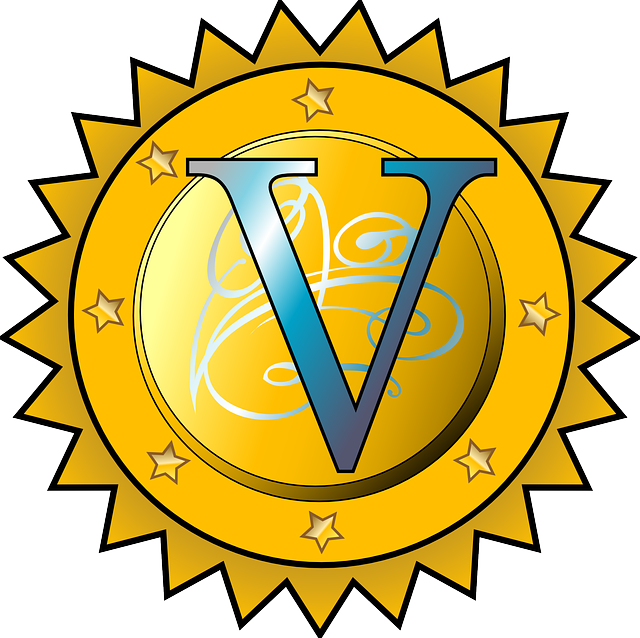Unlocking Purpose: How Defining Your Values Shapes a Fulfilling Life
Ever feel like you’re stuck in neutral, drifting from one decision to the next without a clear sense of direction? You’re not alone. Plenty of us feel this way—unsure, stuck, or even lost—not because we lack ambition or effort but because we haven’t nailed down what matters most. That’s where values come in. Values aren’t just corporate buzzwords or stuff you claim to care about on your LinkedIn profile. They’re the guiding principles behind your decisions, the building blocks of your relationships, and the foundation of your identity. When you don’t know your values, life feels like guesswork—choosing this, avoiding that, hoping it all somehow clicks. But when you define them? Clarity. Focus. Purpose. Suddenly, life starts to make sense. The best part? Defining your values isn’t about achieving some idealised version of yourself. It’s about digging into who you already are—stripped of external expectations and polished personas—and building a life that actually feels like yours. This guide will walk you through the process of identifying, understanding, and living by your values so you can experience the kind of deep, authentic fulfilment that only comes from being unapologetically yourself.Understanding Core Values
Core values are the bedrock of who you are. These are your non-negotiables, the deeply held principles shaping how you appear in the world. Think of them as the compass that keeps you grounded, even when life throws a storm your way. Unlike goals or aspirations—which are more about what you want—core values are about how you want to live and the person you aim to be. Take this: A goal might be to land a big promotion at work, but a core value could be integrity. The two aren’t mutually exclusive, but that value of integrity ensures that even as you chase success, you’re not compromising your principles to get there. Values don’t just steer your actions; they define the kind of person you want to be, no matter the circumstances. So, how do you uncover your core values? Start with reflection. Ask yourself: What matters most to me? What principles guide my biggest decisions? What kind of person do I admire—and why? The answers to these questions will point you toward the values that already influence your life, whether you realise it or not.What Are Values Really?
Here’s the simplest way to think about it: Values are your “why.” They’re the beliefs that make you tick, the silent motivators behind why some choices feel right and others feel wrong. They’re not about good or bad—they’re about you. Your values are deeply personal, and they’re not up for debate. What you value might look entirely different from what your best friend or partner prioritizes, and that’s the beauty of it. This isn’t about aligning with someone else’s list of ideals; it’s about uncovering your own. Take stability and adventure, for instance. Someone who values stability might find joy in routine, clear plans, and predictability, while someone who values adventure thrives on spontaneity, risk, and new experiences. Neither is better or worse—they’re simply different expressions of what feels right to each person. Our values are shaped by a cocktail of factors: upbringing, culture, personal experiences, and even the environments we navigate daily. While they often overlap within families or communities, they’re never carbon copies. One sibling might value freedom, while another leans toward responsibility, proving that even shared environments can produce strikingly different priorities.
The Power of Living a Values-Driven Life
Why bother defining your values? Because when you do, everything changes. Life stops being a series of random events and starts to feel intentional. Your decisions become clearer, your relationships deeper, and your sense of self stronger. Recognising and understanding one’s own values can lead to personal fulfilment and clarity in life changes, reduce internal conflict and enable value-driven decisions aligned with one’s true priorities and goals. Living by your values creates a sense of alignment. You’re no longer pulled in a million directions by other people’s expectations or societal pressures. Instead, you’re rooted in what matters most to you, bringing peace and purpose.How Personal Values Shape Your Identity
Your values are the foundation of who you are. They influence your beliefs, behaviours, and even how you perceive the world around you. Highly valued principles like personal freedom, independence, and hard work contribute to societal norms and personal identity. When you’re clear about your values, you understand yourself on a deeper level, which builds confidence and self-respect. But values don’t just shape how you see yourself—they shape how others see you, too. When your actions align with your values, people notice. They see you as consistent, trustworthy, and authentic. That’s the kind of reputation money can’t buy.The Role of Values in Decision-Making
Every decision you make, from what career to pursue to how you spend your weekends, is influenced by your values—whether you’re aware of it or not. When you define your values, you bring intention to this process. Understanding and prioritizing different values is crucial when making decisions. Imagine you’re offered a high-paying job that requires constant travel, but one of your core values is family. If you’ve defined that value, the choice becomes clear: The job, as tempting as it is, doesn’t align with what matters most. By letting your values guide you, you avoid regret and second-guessing. Instead of feeling torn, you feel grounded, knowing you’ve made a choice that reflects who you truly are.Why It’s Hard to Define Values (and How to Overcome It)
If defining your values feels overwhelming, you’re not alone. We live in a world that’s constantly shouting at us to be this or do that. It’s easy to get caught up in what you should value instead of focusing on what you actually value. Self-awareness plays a crucial role in defining one’s values. It allows one to engage in personal growth and introspection, which helps one identify what truly matters to one. To overcome this, you need to quiet the noise. Take a step back from societal expectations, family pressures, and Instagram comparisons. Instead, look inward. Ask yourself:- What principles have guided my happiest moments?
- What beliefs have I stood by, even when it was hard?
- What would I fight for, no matter the cost?
How to Define Values: The Stan Slap Way
Stan Slap, a master at helping people connect with their deepest beliefs, has crafted a brilliantly simple yet transformative process to define your personal values. It’s all about starting with the big picture and narrowing it down to the essentials that truly represent who you are. His method takes you from a broad exploration to the laser focus of knowing exactly what guides your decisions and actions. The journey begins with a comprehensive list of potential values—think words like creativity, compassion, freedom, and integrity. Your first task? Choose the ones that speak to you, the values that spark a sense of recognition or even a gut-level reaction. Don’t worry about overanalysing or filtering for what “sounds good.” At this stage, the goal is to identify what feels true to you. Then comes the hard part: narrowing the list. Start by trimming it down to ten, then five, and finally to your top three. Each cut forces you to prioritise, focusing on the values you absolutely can’t imagine living without. But it doesn’t stop there. The real magic lies in making these values personal. Slap stresses the importance of defining what each value means to you specifically. Let’s say “freedom” makes your final cut—what does that look like in your life? For one person, freedom might mean financial independence; for another, it could mean the ability to explore creative pursuits without constraints. By giving your values personalised definitions, you transform them from abstract ideas into actionable principles that can guide your choices every single day. Want to dive deeper into Stan Slap’s process? Check out his guide, Bury My Heart at Conference Room B, for more insights.Reflection: The Key to Finding Your Values and Self-Awareness
Defining your values starts with looking at your life—past, present, and future. Think about the moments that have shaped you. What were the values at play when you felt most alive, proud, or at peace? Reflecting on past experiences can also foster new ideas, enabling you to experiment with new approaches and concepts that challenge traditional norms. Also, consider the flip side. When have you felt frustrated, trapped, or out of sync? Often, these moments reveal values that were being ignored or violated. By reflecting on your experiences, you can identify the principles that have consistently guided your actions, even if you weren’t fully aware of them.Identifying Your Top Values
Identifying your top values is a crucial step in understanding yourself and creating a life that aligns with your core values. This process involves deep reflection on your past experiences, relationships, and decisions. Ask yourself:- When have I felt most fulfilled and satisfied?
- What values have I consistently demonstrated in my relationships and interactions?
- What values have I compromised on in the past, and how did that make me feel?

Turning Values into Daily Habits
Once you’ve defined your values, the next step is living them. This isn’t about making grand gestures; it’s about weaving your values into the fabric of your everyday life. Identifying ‘good value’ in your daily actions can lead to a fulfilling life. You can ensure that your efforts are well-spent and meaningful by recognising and acting on opportunities that offer a favourable return on investment, whether in relationships, work, or personal growth. Let’s say one of your core values is kindness. You don’t need to start a nonprofit to live by that value (though that’s amazing if you do). It could be as simple as checking in on a friend, helping a colleague, or practising patience when you’re stressed. When you consistently act on your values, they become second nature. Over time, this alignment between your beliefs and actions creates a sense of integrity and fulfilment that’s hard to shake.The Challenge of Conflicting Values
Even with a clear set of values, life can get messy. Sometimes, your principles will clash. For instance, you might value loyalty but find yourself in a situation where being honest with a friend feels like a betrayal. When values conflict, there’s no easy answer. But by reflecting on the situation, you can make a choice that aligns with who you want to be. Remember, it’s not about being perfect—it’s about striving to live authentically, even when it’s hard.Adapting Your Values as You Grow
Here’s a little secret: Values aren’t set in stone. Your priorities might shift as you grow and evolve, and that’s okay. What mattered most to you at 20 might not hold the same weight at 40. The key is to revisit your values regularly. Check in with yourself. Are your current principles still serving you? If not, give yourself permission to adapt. This doesn’t mean abandoning your core beliefs—it means staying flexible and open to growth.Common Misconceptions About Values
One of the biggest misconceptions about values is that they’re about being “good.” But values aren’t about morality or impressing others. They’re about what resonates with you, even if it’s unconventional. Another myth is that values are fixed. While some core principles might remain constant, others can change as your life circumstances, experiences, and goals evolve.The Ripple Effect of Living Your Values and Intrinsic Worth
When you live by your values, the impact goes beyond your personal life. Your actions inspire others to do the same, creating a ripple effect. Whether it’s through your work, relationships, or community, your values can spark positive change in the world around you.Embracing the Journey of Defining Values
Defining your values isn’t a one-and-done process. It’s a journey that requires introspection, honesty, and a willingness to grow. But the rewards are worth it. Living according to your values means you’re not just existing—you’re thriving. You’re building a life that feels true to who you are, and that’s a kind of fulfilment no paycheck, achievement, or Instagram-like can replicate.Wrapping It Up: Your Life, Your Values
Your values aren’t just abstract ideas—they’re the bedrock of who you are. They shape your decisions, anchor your identity, and hold the secret to a truly meaningful life. When you take the time to define, reflect on, and live by them, you’re not just existing; you’re charting a course toward authenticity and fulfilment. So, here’s the big question: What really matters to you? What principles do you want steering your ship as you navigate this wild, unpredictable journey called life? The answers are already within you. You just need to pause, listen, and trust yourself enough to act on them.Written by business coach and leadership coaching expert Dominic Monkhouse. Contact him to schedule a call here. You can order your free copy of his book, Mind Your F**king Business here.

